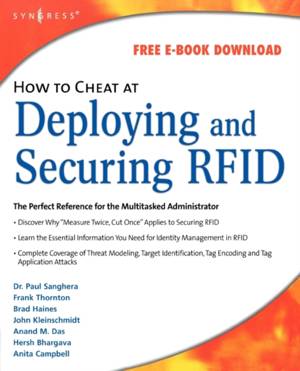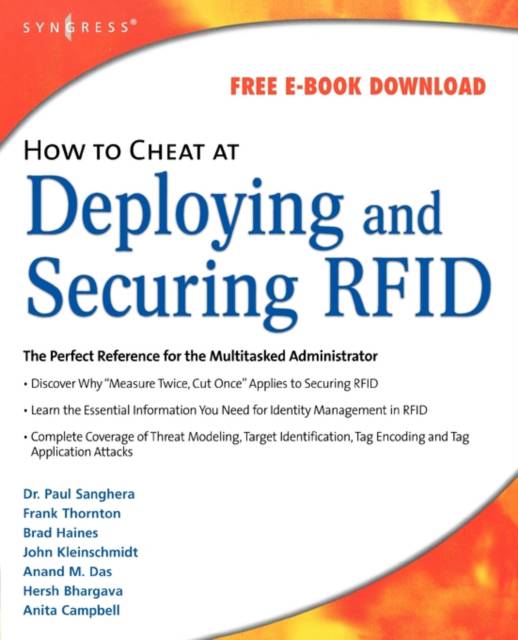
- Retrait gratuit dans votre magasin Club
- 7.000.000 titres dans notre catalogue
- Payer en toute sécurité
- Toujours un magasin près de chez vous
- Retrait gratuit dans votre magasin Club
- 7.000.0000 titres dans notre catalogue
- Payer en toute sécurité
- Toujours un magasin près de chez vous
Description
RFID is a method of remotely storing and receiving data using devices called RFID tags. RFID tags can be small adhesive stickers containing antennas that receive and respond to transmissions from RFID transmitters. RFID tags are used to identify and track everything from Exxon EZ pass to dogs to beer kegs to library books. Major companies and countries around the world are adopting or considering whether to adopt RFID technologies. Visa and Wells Fargo are currently running tests with RFID, airports around the world are using RFID to track cargo and run customs departments, universities such as Slippery Rock are providing RFID-enabled cell phones for students to use for campus charges. According to the July 9 CNET article, RFID Tags: Big Brother in Small Packages?, "You should become familiar with RFID technology because you'll be hearing much more about it soon. Retailers adore the concept, and CNET News.com's own Alorie Gilbert wrote last week about how Wal-Mart and the U.K.-based grocery chain Tesco are starting to install "smart shelves" with networked RFID readers. In what will become the largest test of the technology, consumer goods giant Gillette recently said it would purchase 500 million RFID tags from Alien Technology of Morgan Hill, CA." For security professionals needing to get up and running fast with the topic of RFID, this How to Cheat approach to the topic is the perfect "just what you need to know" book!
Spécifications
Parties prenantes
- Auteur(s) :
- Editeur:
Contenu
- Nombre de pages :
- 362
- Langue:
- Anglais
- Collection :
Caractéristiques
- EAN:
- 9781597492300
- Date de parution :
- 01-10-07
- Format:
- Livre broché
- Format numérique:
- Trade paperback (VS)
- Dimensions :
- 194 mm x 234 mm
- Poids :
- 616 g

Les avis
Nous publions uniquement les avis qui respectent les conditions requises. Consultez nos conditions pour les avis.






